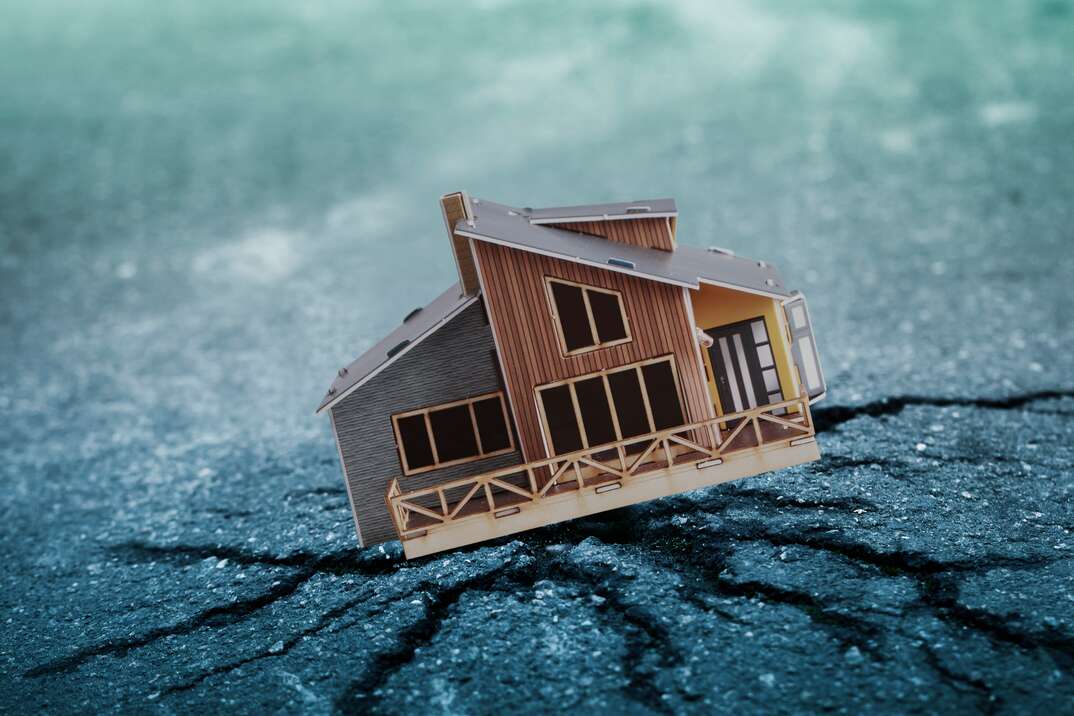Do You Need Earthquake Insurance?

Do you live in an area that's prone to earthquakes? Many earthquakes are minor and don't cause much damage, but there's always a chance that violent earth movements could cause massive damage to your home.
Having earthquake insurance can provide financial protection if you experience one of those destructive events.
What Is Earthquake Insurance?
Earthquake insurance is additional coverage beyond your standard homeowners policy that provides coverage in case of damage caused by earthquakes. Homeowners insurance typically doesn't cover damage from earthquakes, landslides and similar land movement events. Buying a separate supplemental earthquake policy can pay for the damages caused by an earthquake.
What earthquake insurance policies cover can vary, depending on your provider and where you live. In general, a standard policy offers dwelling, personal property and loss-of-use coverage. The dwelling portion pays for the structure of the home, whether you need to do repairs or rebuild the house. Personal property coverage gives you money to replace your belongings if they get destroyed during the earthquake. If you need to live somewhere else temporarily, the loss-of-use portion covers additional living expenses you'll need for alternative housing.
Earthquake insurance policies also have optional riders you can add for different types of coverage. For example, if your home has a masonry veneer, you might need an additional rider to cover the exterior repairs.
How Much Does It Cost?
According to Forbes, the average annual premium for earthquake insurance is $850, but the premiums can vary significantly depending on several factors. Where you live is a major contributor to the price. If your area has a lower risk of having an earthquake, your premiums will likely be lower.
The deductible is another factor. Most earthquake policies have a 10% to 20% deductible based on the amount your home is insured for. If your policy offers $200,000 worth of coverage and you have a 10% deductible, you'll pay for the first $20,000 of damage. If you have a 20% deductible, you'll likely pay less for your premiums. However, you'll pay more to have repairs done before you hit your deductible amount.
Your home's condition also impacts the cost. If your home is older or has few protections from earthquake damage, you'll likely see a higher premium. Newer homes built to resist earthquake damage should cost less to insure. The materials and design of your home can also play into the cost, since those details can affect how much it costs to rebuild or repair the structure. Getting a quote from an insurance agent is the best way to estimate how much you'll spend on earthquake coverage.
Do You Need Earthquake Insurance?
Lenders don't typically require you to have earthquake insurance, even if you live in an area with a high risk of earthquakes. It's up to individual homeowners and renters to decide if they want this optional coverage.
Is Earthquake Insurance Worth It if You Live in an Earthquake-Prone Area?
Whether earthquake insurance is worth it depends largely on your situation. If you live in an area with a high risk of earthquakes, it's more likely that the policy will be worth the cost. However, you'll also likely pay more for the premiums. You need to assess the risk of going without insurance coverage versus the cost.
Keep in mind that earthquake insurance policies typically have high deductibles. If you live in an area with relatively minor earthquakes, they might not do enough damage to exceed the amount of the deductible. That means you wouldn't get any money from the policy for repairs. On the other hand, a massive earthquake could happen at any time, which could cause major damage. If you're considering skipping an earthquake policy and you live in an area with a lot of earthquakes, consider whether your financial situation would allow you to make repairs, replace your belongings and afford temporary housing.
Elocal Editorial Content is for educational and entertainment purposes only. Editorial Content should not be used as a substitute for advice from a licensed professional in your state reviewing your issue. The opinions, beliefs and viewpoints expressed by the eLocal Editorial Team and other third-party content providers do not necessarily reflect the opinions, beliefs and viewpoints of eLocal or its affiliate companies. Use of eLocal Editorial Content is subject to the
Website Terms and Conditions.The eLocal Editorial Team operates independently of eLocal USA's marketing and sales decisions.



